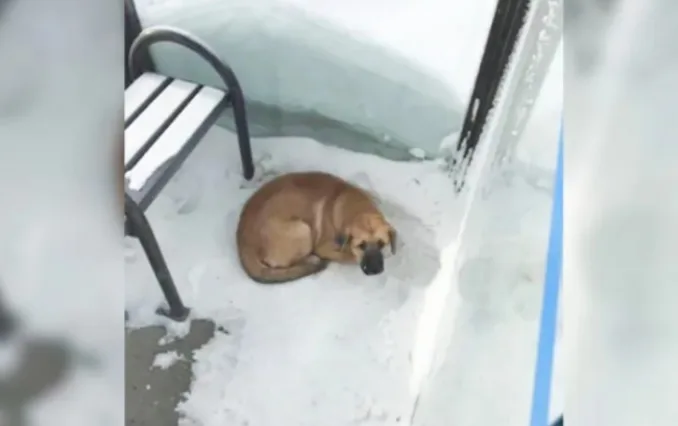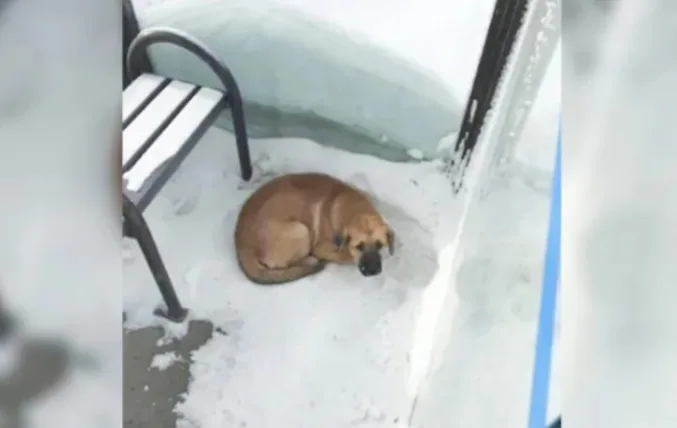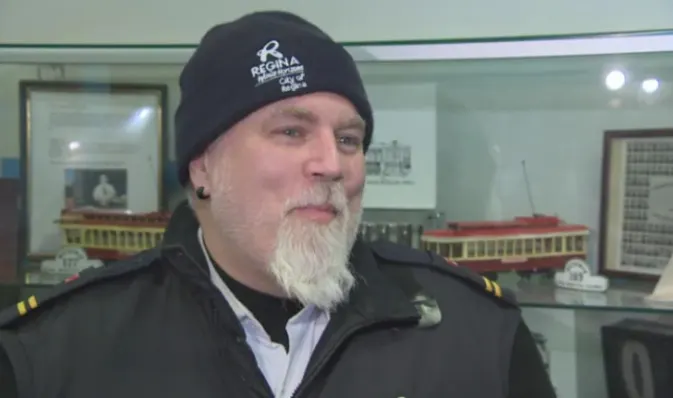
Lost puppy rescued from bus stop in -32C weather
Transit services officer Darren Szabo said he was dispatched to a bus stop at on 1st Avenue N and Alexandra Street on Wednesday afternoon after a passenger told a city bus driver a puppy was there alone.
Szabo said he rushed to the scene, unsure of how many other calls the Humane Society was taking.
When he got to the bus stop, he saw a small dog in the corner of the shelter, shivering and shaking.
He tried to form a relationship with the dog, that growled at him at first. When the dog warmed up to him, Szabo was able to wrap him up in his jacket until the Humane Society arrived.

A small puppy was found at a Regina bus stop on Wednesday afternoon, when the temperature dipped to -32 oC. Credit: Facebook/Regina Transit.
"I just did what I would hope anyone else would do," Szabo said. "I knew with the extreme temperatures that a matter of minutes could make a difference between him losing the tips of his ears or his paws or anything like that."
"If I got cold, I knew I could always grab another jacket. This poor dog didn't have that chance."
The Regina Humane Society said the puppy was in good condition, and was not suffering from frostbite or hypothermia when it was brought in.
(RELATED: Kitten stranded in freezing cold rescued by firefighters)
The animal, which had been reported missing, has since been reunited with his family.
Regina Transit's Facebook post about the puppy has been shared over 1,000 times.
SAFE RIDE PROGRAM
Szabo said Regina Transit workers are trained to look for people and animals in need, year-round.
The Safe Ride Program allows anyone who is in need or feeling unsafe to flag down a bus by sticking their arm out. The program is used by those who need medical aid, people being bullied or harassed and lost children.

Transit services officer Darren Szabo says he didn't mind sacrificing his jacket to the puppy and is just happy it's in good condition. Credit: CBC News/Kirk Fraser.
Szabo said the drivers are trained to look for that sign and pull over as soon as it's safe to do so. The drivers have direct access to 911.
"We've got a lot of eyes and ears on the road to help out with the community," said Szabo. "And we have the resources that we can help these people when they need it."
*This article was originally published by CBC News and written by Alex Soloducha. *










